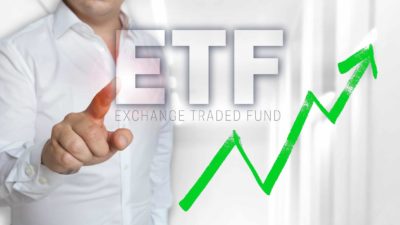The BetaShares Nasdaq 100 ETF (ASX: NDQ) has faced a steep uphill battle this year.
As concerns about soaring inflation and rising interest rates spread far and wide, few corners of the market have been spared.
But tech shares, in particular, have borne the brunt of the sell-off.
As interest rates rise, like they have been this year, share prices typically fall. Tech shares are particularly sensitive to changes in interest rates because their valuations are largely based on future growth prospects.
This has spelt trouble for the NASDAQ 100, an index that heavily favours technology.
And given that the NDQ ETF aims to track the performance of this index, it too has been down in the dumps.
According to Google Finance, the NDQ ETF has tumbled 24% in the year to date. In contrast, the S&P/ASX 200 Index (ASX: XJO) has suffered a more muted 10% fall.
The NASDAQ 100 index comprises 100 of the largest non-financial companies listed on the Nasdaq exchange.
As it stands, nearly 50% of the NDQ ETF is weighted toward information technology companies.
Unsurprisingly, its top holdings are a who's who of tech giants. This includes the likes of Apple Inc (NASDAQ: AAPL), Microsoft Inc (NASDAQ: MSFT), Alphabet Inc (NASDAQ: GOOGL), and Amazon.com Inc (NASDAQ: AMZN).
But it also includes an array of rising tech stars, such as Tesla Inc (NASDAQ: TSLA), NVIDIA Corporation (NASDAQ: NVDA), PayPal Holdings Inc (NASDAQ: PYPL), and Adobe Inc (NASDAQ: ADBE).
Why I'm keeping the faith
With an ultra-long-term investment horizon, I believe my units in the NDQ ETF will duly appreciate.
As this year has shown, it won't always be smooth sailing.
But knowing I'll have plenty of time to ride out inevitable volatility and reap the wonderful benefits of compounding helps me to sleep easy at night.
Investing in ETFs passively with the long term in mind, I don't have to worry about what the market is doing day to day or even month to month.
For me, this is one of the key benefits of investing in index-tracking ETFs.
In my mind, an investment in the NDQ ETF is an investment in the value creation and innovation of a broad basket of leading businesses.
And history shows that over the long term, the stock market has always gone up.
The NASDAQ 100 index, for example, is printing an average return of 15.9% per annum over the last 10 years.
As we know, past performance is not a reliable indicator of future performance. And I'm not expecting returns to necessarily be this strong in the years ahead.
But I'm happy to back the success of a wide range of the world's most innovative companies, confident that at the very least I'll be generating positive investment returns.
Plus, the good thing about an index is that it's regularly rebalancing. This favours the strong performers and weeds out the companies failing to deliver.
Perhaps my biggest gripe with the NDQ ETF is the management fees. Coming in at 0.48%, it's well and truly on the high side for a simple index-tracking ETF. This is something to bear in mind.
The cheapest ETF currently on the ASX is the Vanguard US Total Market Shares Index ETF (ASX: VTS), charging management fees of just 0.03%.









